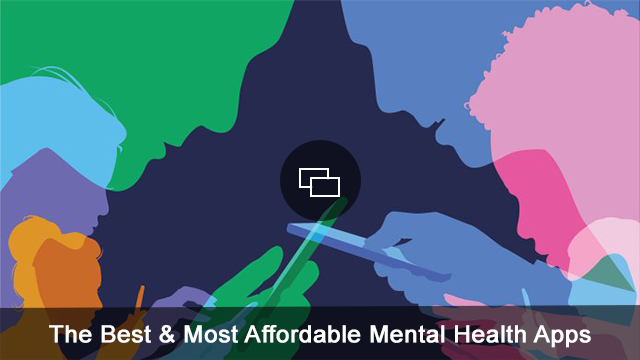Last month, the Surgeon General made an announcement that came as a surprise to, well, no parent ever: parents are struggling, mental health-wise.
Yes, we know what you’re thinking. We’ve been talking about parental burnout for years, and parents have been experiencing it for way longer. Is this… news to anyone? But that was the point the Surgeon General, Dr. Vivek Murthy, is making: this has always been an issue, and it’s only getting worse. Why has it only recently entered the mainstream conversation? And why are so many parents still struggling in silence?
“I had a two-part reaction to the Surgeon General advisory,” Dr. Becky Kennedy, aka Dr. Becky, a bestselling author and Founder & CEO of Good Inside parent coaching, tells SheKnows. “On the one hand, my reaction was, ‘Thank goodness there’s more attention to this issue… I’m so glad this is getting national attention.” But on the other hand, Dr. Becky felt frustrated. “Not frustrated with the Surgeon General,” she clarifies, “but frustrated that there are so many of us who have been screaming this from the rooftops.”
In a New York Times article announcing the advisory, Dr. Murthy cited statistics showing the steep mental health challenges faced by parents in the US, including a recent study that found that nearly 50 precent of parents say their stress levels are “completely overwhelming” most days, compared to 26 percent of other adults. Other research showed that parents feel lonelier than other adults and that they have less time for themselves, as they spend more time working and caring for their kids.
And that stress and disconnectedness doesn’t come from just one thing. “There are so many causes of stress and burnout and mental health concerns [for parents],” Dr. Becky explains. “The big theme that’s on my mind is how demanding it is to be a parent right now.” While parenting has always been hard (understatement of the year, we know), she noted that we’re now in a digital age that’s changing almost everything about being a parent. You have to analyze your kid’s screentime, and your own; decide when they should have a phone and social media accounts; help them navigate scary scenarios like cyber-bullying and toxic online communities; and find ways to encourage them to do things that aren’t related to iPhones and laptops. Meanwhile, your own For You page is filled with dazzling examples of perfect parenthood, complete with homemade cereal and flawless makeup — just to ensure you feel as inadequate as possible.
And yet, with all these new challenges, parents still don’t have the resources or support they need, Dr. Becky says. “There even seems to be shame around seeking support, because of the old narrative that this is just supposed to be done by instinct.” The overwhelming duties of parenting, combined with the expectations around “having it all together,” can result in a culture of silence. “We stay quiet,” Dr. Becky explains. “We feel like it’s all our fault, right? We kind of turn against ourselves in that way.”
According to Dr. Murthy, the change needs to come on multiple levels. “It begins with fundamentally shifting how we value parenting, recognizing that the work of raising a child is crucial to the health and well-being of all society,” he wrote. That includes expanding and improving the policies and programs that support parents, like ensuring better parental leave, childcare, and access to parental mental health care.
Dr. Becky would also like to see more accessibility to parental resources, including “high quality parent coaching services” like Good Inside, which she believes should be an FSA- or HSA-eligible expense. “To me, that would be a higher level way of saying, ‘We see that parents need more support. We see that there are mental health struggles and consequences of not having resources and support. We want to make it that much easier for parents to be able to invest in themselves and in their children.’”
On the individual level, Dr. Murthy encouraged readers to continue offering help or a sympathetic ear to parent friends or family, and to accept that help when you’re the one struggling. Dr. Becky got even more fundamental. “The first thing we could always do is we could tell ourselves, ‘This feels hard because it is hard, not because I’m doing something wrong,’” she says. “Struggles are hard. Parenting is hard. But what makes it impossible is when we blame ourselves, when we turn against ourselves.”
Accepting that being a parent is hard work, and that it’s natural and normal to struggle, starts to eliminate the stigma around parental mental health. It makes it possible for us to talk about how hard it is and to reach out for help — from friends, family, or mental health professionals — when we need it. “When we remind ourselves, ‘this feels hard because it is hard, not because I’m doing something wrong,’” Dr. Becky says, “we stop living in shame, and we feel more empowered to go get support.”
pmcCnx.cmd.push(function() {
pmcCnx({
settings: {
plugins: {
pmcAtlasMG: {
iabPlcmt: 2,
},
pmcCnx: {
singleAutoPlay: ‘auto’
}
}
},
playerId: “8889bdf8-9f8a-4b82-8342-c15b4149d1f2”,
mediaId: “7d9888e8-942a-49b6-9ed9-0f97afe9936f”,
}).render(“connatix_player_7d9888e8-942a-49b6-9ed9-0f97afe9936f_1”);
});
Before you go, check out our favorite mental health apps:
This article was originally published on sheknows.com.


